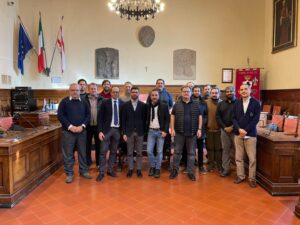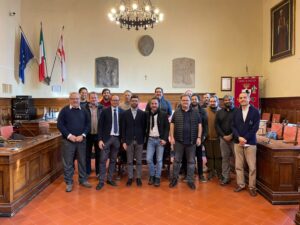Use Cases
Use Case
Kiel Use Case
Facilitate the re-use of the IoT data on Mobility & Environmental data via the NGSI-LD specification and facilitate the reuse through a data portal based on CKAN and the European Data Portal.
Use Case
Arezzo Use Case
As a result of this project, the technical team of phoops (https://phoops.it) will expand the already existing services around parking with further services, e.g. a tripplaner for multimodal mobility or also a calculator to determine CO2 emissions. This development will significantly contribute to empowering the city of Arezzo, and especially its citizens, to “drive” in a more comfortable and environmentally friendly way, and will enable the city to analyse the data in real time and use resources in a better and more efficient way.
Use Case
St. Quentin Use Case
Test (implement), evaluate and deploy a component that supports the NGSI-LD temporal API for historical data access. It is our aim to offer the selected IoT data also via a scalable NGSI-LD historical interface.
Use Case
Cartagena Use Case
Contribute to the quality/usability/scalability of open-source NGS-LD components. Monitoring of such components will also be an important aspect to consider.
Use Case
Heidelberg Use Case
Setup a CKAN Data portal with the knowledge gained from the frontrunner cities (feeds into Innovation Management Activity).
Use Case
Flanders Use Case
Facilitate the discovery of environmental datasets through standards. Run the OSLO (Open Standards for Linked Organizations) path on metadata and map this OSLO metadata standard to NGSI-LD context semantics in DCAT-AP 2.0., this will increase NGSI service discovery. The standardized datasets are registered in the existing Flanders Information.


